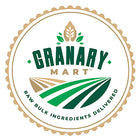Enhancing culinary offerings with Mediterranean flavors involves embracing vibrant, wholesome ingredients that define this cuisine, celebrated for its aromatic dishes and rich textures. The growing popularity of these flavors, driven by consumer interest in healthier, globally inspired cuisine, highlights the importance of herbs and spices like mint, basil, thyme, fennel, cumin, and cinnamon, which create the signature tastes of Greek, Turkish, and Moroccan dishes. Businesses that incorporate these authentic ingredients can meet evolving preferences, differentiate their products, and expand their market reach by delivering the sought-after flavors that define Mediterranean and Middle Eastern cuisines.
Herbs and Spices: The Heart of Mediterranean and Middle Eastern Cooking
Mediterranean food recipes rely on a rich tapestry of herbs and spices, representing a valuable product category with significant market potential. Ingredients such as bay leaf, basil, mint, and thyme, along with spices like coriander, cumin, and cinnamon, are integral to crafting the complex flavor profiles that define these cuisines. Fresh herbs add brightness and aromatic qualities, while their dried counterparts provide warmth, spiciness, and a longer shelf life.
Incorporating these authentic, natural herbs and spices into your product offerings can enhance the natural flavors of a wide variety of foods, from whole grains and vegetables to meats, lentils, beans, and seafood. This balance is crucial for achieving the distinctive taste and health benefits associated with Mediterranean cuisines.
The Role of Whole vs. Ground Herbs and Spices
Understanding the role of whole versus ground herbs and spices can help to meet diverse customer needs. Whole spices, like bay leaves and cinnamon sticks, release their essential oils slowly, providing a nuanced flavor that enhances dishes over time. Ground spices, such as cumin and coriander powder, offer an immediate and intense flavor impact, ideal for quick preparation and bold flavor profiles. Dried herbs like mint and basil can be used either whole or ground, depending on the desired application, maintaining their vibrant qualities or blending seamlessly into recipes.
Some Essential Herbs and Spices for Versatile Mediterranean Cooking
1. Basil: A cherished herb known for its subtly sweet, spicy, and minty flavor, basil is a key ingredient in traditional Mediterranean dishes like pesto, tomato sauces, and caprese salad. Fresh basil is often used to garnish the dishes, while dried basil; offers a more concentrated herbal depth ideal for marinades, sauces, soups, and stews. Basil powder is especially useful in dry rubs, seasoning mixes, and dishes where the fresh herb may not be available or ideal. Its versatility and health benefits make basil a cornerstone herb.
2. Mint: Valued for its refreshing, cool flavor with a hint of sweetness, mint is a versatile herb in Mediterranean and Middle Eastern food. Fresh mint is commonly used in salads, sauces, and as a garnish, while dried mint retains its menthol-like flavor and is ideal for seasoning stews, soups, and roasted meats. It pairs perfectly with ingredients like yogurt, lamb, and vegetables, enhancing their flavors and bringing a bright, aromatic note. Mint leaves are also used in beverages and desserts, contributing a refreshing element.
3. Cardamom: A prized spice in both Middle Eastern and Mediterranean cuisines, offering a warm, sweet, and slightly citrusy flavor with floral undertones. It's versatile, used in savory and sweet dishes, spice blends, and beverages. From spice blends and pilafs to cakes, pastries, coffees, and teas, cardamom adds depth and complexity. It's a key flavor in traditional desserts like baklava and halva. Whether whole, crushed, or ground, cardamom plays a central role in these cuisines, contributing a distinctive, comforting, and exotic flavor.
4. Cinnamon: It is a versatile spice used in Mediterranean cooking, adding warmth, sweetness, and a subtle spice to dishes. This spice used in savory recipes like stews, marinades, tagines, tomato sauces, rice dishes, and even in desserts like baklava and ma'amoul (date-filled cookies). Cinnamon is also a key ingredient in spiced teas and spice blends like baharat. Its versatility and unique flavor profile make it a staple in these cuisines.
5. Bay Leaf: Known for its subtle, earthy aroma, bay leaf is a fundamental herb with health benefits and typically added whole to broths, stews, and sauces, where it slowly releases its flavor. In Mediterranean recipes, bay leaves enhance marinades, slow-cooked meats, legumes, and rice dishes, adding depth and complexity. Despite being removed before serving, their impact on flavor is undeniable.
6. Fenugreek: It is a versatile spice with a distinctive bittersweet, nutty flavor. It's a key ingredient in Middle Eastern and Mediterranean spice blends, used in spice blends, spiced meats, breads, and pickles. Fenugreek seeds are often toasted and ground into powder for added aroma. Fenugreek powder and leaves can also be used in soups like Eshekeneh and as well as in a variety of other regional recipes.
7. Garlic: A ubiquitous ingredient, garlic’s pungent, savory notes enhance a wide range of dishes. In Middle Eastern cuisine, garlic is essential in spice blends, marinades, lentil soups, and stews, playing a key role in dishes like hummus, falafel, and baba ghanoush. Mediterranean cuisine relies on garlic for aioli, pesto, pasta, tzatziki, salads, roasted vegetables, and seafood. Dried garlic powder offers a convenient, concentrated flavor for pasta dishes, sauces, and rubs. Whether fresh, minced or powdered, garlic’s versatility and rich taste are crucial in shaping these cuisines while also offering health benefits.
In conclusion, herbs and spices are essential for enriching Mediterranean food recipes, adding depth and complexity to dishes. Incorporating these aromatic ingredients into your product offerings can deliver substantial benefits. Bulk purchasing not only ensures cost savings but also maintains freshness and consistency, which are essential for meeting market demand and boosting profitability.
By sourcing high-quality herbs and spices, businesses can enhance their product lines and tap into the growing interest in vibrant and authentic flavors. Offering premium spices , lentils and beans, and other products helps capture a share of this bustling market. Emphasizing these genuine ingredients allows you to differentiate your product line, meet diverse culinary needs, and support culinary innovation.




